MARKET OVERVIEW
The global knowledge management solutions market within the enterprise software segment will continue to influence the way companies structure, disseminate, and access internal knowledge assets. It is at the crossroads of digital transformation, employee productivity, and operational intelligence. It concerns itself with how structured and unstructured knowledge will be captured, retrieved, and utilized in the enterprise using intelligent platforms, smart search capabilities, and collaborative technologies. Organizations will be depending more on centralized platforms that enable employees to tap into and share institutional wisdom without replicating effort or losing context department to department. With growing volumes of data and remote working further blurring corporate infrastructure, the global knowledge management solutions market will facilitate models that assist teams to access vetted information on demand.
Such systems will have AI-enhanced tools, metadata tagging, document management, and semantic search capabilities. They will also have three-tiered process-oriented knowledge workflows designed to eliminate inefficiencies due to redundant or antiquated knowledge silos. Knowledge Management Solutions will go beyond basic content repository to include knowledge discovery, validation, and integration with third-party platforms, making sure that users can find what they are looking for at the moment they need it. The extent of the global knowledge management solutions market will extend into multiple verticals such as healthcare, legal, finance, education, and government. All of these industries will require tailored knowledge solutions that map to unique regulatory, compliance, and operating requirements.
The software being implemented within this market will not exist as separate systems but as part of overarching enterprise ecosystems. Whether legal practice maintains case histories or global corporations harvest subject matter knowledge from leaving employees, such solutions will facilitate long-term preservation and reuse of intellectual resources. In addition, global knowledge management solutions market will become more embedded in collaboration environments, analytics engines, and customer-facing portals. The need for friction-free access to institutional insight on various devices and languages will fuel the adoption of multilingual support, cross-platform integrations, and natural language processing. This market will become an intelligence hub within and between organizations where knowledge workers derive value not only from documents but from insights derived throughout chat histories, video clips, customer sentiment, and project repositories.
What makes the global knowledge management solutions market stand out from legacy content management is that it aims for usability, contextual precision, and knowledge life cycle. The systems that will be installed will not just maintain information but will also control its verification, expiration, and conversion into refreshed forms that reflect evolving policies or breakthroughs. The direction of the industry will be defined by a greater necessity to empower workers to take decision-making measures on their own in real time, based on knowledge that has been systematically verified and structured. As companies grow and geography of operations increases, the need for digital solutions to handle institutional knowledge will increase. The global knowledge management solutions market will answer with solutions that enable knowledge retention, reduce operational risk, and decrease onboarding time within organizations. This segment will not only store information it will organize it in a manner that guarantees continuity, flexibility, and long-term competitive edge.
Global knowledge management solutions market is estimated to reach $118,742.36 Million by 2032; growing at a CAGR of 12.7% from 2025 to 2032.
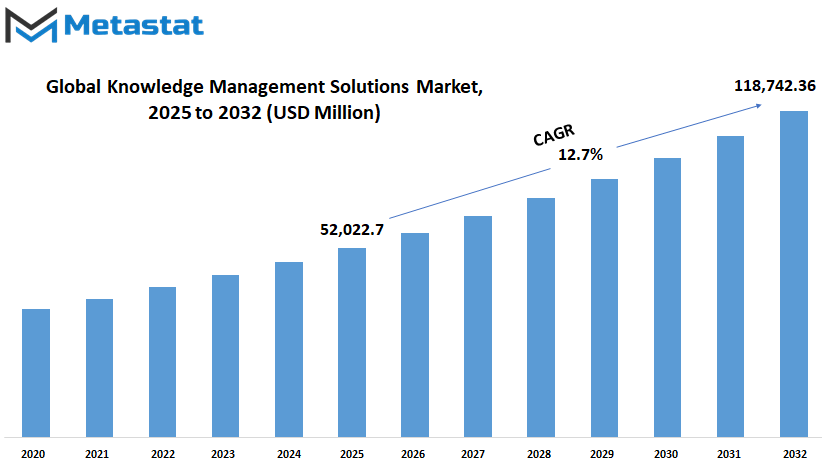
GROWTH FACTORS
The global knowledge management solutions market is attracting significant interest as organizations seek solutions to store, organize, and share knowledge in an efficient manner. This transformation primarily results from the increasing significance of retaining valuable knowledge in organizations. When staff members depart or switch functions, experience and knowledge frequently migrate with them. Companies are now discovering that unless this information is documented and made available, they stand to lose it permanently. Mechanisms for capturing and reusing the information are no longer viewed as nice-to-haves, but as must-haves for long-term success. Concurrently, the work environment is evolving.
More businesses have started to provide remote and hybrid work arrangements, so individuals are getting work done in various places and time zones. This shift results in a high demand for centralized systems through which the staff is able to access the information they need without having to depend on face-to-face interactions or fragmented emails. The global knowledge management solutions market is assisting in fulfilling this requirement by giving people platforms where knowledge is being stored and accessed by all members of the organization irrespective of whether they are working remotely or not. This not only enhances productivity but also assists in making better decisions throughout teams. Despite all these advantages, there are still some issues that need to be resolved. One significant problem is ensuring that information placed in the systems is correct and current.
If the information is incorrect or out of date, this can result in erroneous decisions. A second problem is getting individuals to use the system. Regardless of how advanced the technology is, it will not work if workers do not trust it or cannot use it. Integration with current tools also brings an added level of complexity. Most businesses already employ various software, and incorporating a new system into the mix is challenging and time-consuming. In the future, new technologies are unlocking promising opportunities for the global knowledge management solutions market. The application of machine learning and artificial intelligence will enable systems to learn about the most valuable information to each individual and present it to them automatically. They can also assist in searching for patterns in massive collections of data so that the most valuable insights may be easily discovered. As time goes on, these technologies will only make knowledge management more powerful and more customized.
MARKET SEGMENTATION
By Type
The global knowledge management solutions market will keep expanding as organizations globally seek to utilize information more effectively. With more data being created every day, the necessity to structure, save, and retrieve it in meaningful modes increases. Companies will not simply want to archive documents they will seek intelligent systems that enable individuals to locate the correct information rapidly, share it readily, and apply it to make sound decisions. This movement is propelling the need for tools that do not only assist but also make it easy to use. One of the essential components of this market is the increasing demand for tools such as Knowledge Base Systems.
These systems will assist employees and customers in locating solutions without having to wait for others. Meanwhile, Document Management Systems will still have a significant role in protecting files, keeping them organized, and being easily updatable. As more companies depend on electronic platforms, Content Management Systems will assist in keeping everything transparent and accessible, be it on the web, an app, or an internal network. Learning Management Systems will be increasingly adopted as companies seek to train their employees without using up their time. These systems enable individuals to learn at their own pace and monitor what they've learned.
Collaboration Tools will enable teams to collaborate even when they are distant from each other. With increased remote work and worldwide teams, these tools are not just beneficial now they are essential. Workflow Automation Tools will also become essential. These gadgets cut down on the time consumed by menial tasks as they perform them automatically, leaving employees to concentrate on more reflective work. Reporting and Analytics Tools will enable leaders to know how well the systems are functioning and what can be improved on. These tools provide clear-cut information that can be used in making decisions. With advancements in technology, all these systems will become wiser and simpler to use. The emphasis will change from having information to utilizing it in the best possible manner. In the years to come, the global knowledge management solutions market will not only facilitate the manner in which business operates it will define it. Businesses that take good advantage of these solutions will be more likely to manage change, enhance performance, and keep staff in the know. With technology evolving at a rapid rate, the systems we employ to drive knowledge must also evolve, becoming more integrated, more assistive, and more attuned to people's real needs.
By Application
The global knowledge management solutions market is gradually defining the manner in which organizations store, share, and utilize their internal knowledge. With companies still expanding across borders and industries becoming increasingly interconnected, the necessity of managing information more effectively has never been more critical. In the future, this market will heavily contribute to allowing companies to remain organized and efficient while enabling them to respond better to challenges.
Firms usually encounter the issue of dispersed or antiquated knowledge. If the information resides in numerous locations, then staff members might find it hard to access what they need. This hinders work and leads to errors. Knowledge Management Solutions will provide a solution to consolidate all into one place so that useful information can be easily accessed and updated. Whether it's paperwork, processes, or expert knowledge, these systems will assist in ensuring that the right individuals can locate what they require when they require it. In the future, various aspects of a business will gain from these solutions differently.
Within Customer Support, they will assist in enabling teams to provide quicker and more correct answers by walking agents through previous resolutions and frequent issues. In IT Operations and Support, these systems will lower downtime by allowing technical repairs and system intelligence to be stored that may otherwise be lost when employees depart or change positions. For Human Resources, having a single location to keep company policies, hiring practices, and onboarding documents will save time and enhance the employee experience. In functions such as Sales and Marketing Enablement, rapid access to customer trends, product data, and campaign performance will facilitate improved decisions. These tools will also assist Training and Development teams by providing a common place to monitor learning materials, feedback, and skill development.
For Product Development and Innovation, keeping past versions, research notes, and test results under one roof will make it simpler to leverage previous efforts instead of having to start all over. For Compliance and Risk Management, keeping detailed records and simple tracking tools available will simplify compliance and catch problems before they develop. The future of the global knowledge management solutions market will not just be about storing information. It will also assist in bringing people and ideas together, making businesses more agile and prepared for whatever is ahead. As companies continue to depend on intelligent systems to assist their employees, this market will become more pivotal to the day-to-day activities of all industries.
By End User
The global knowledge management solutions market is increasingly significant as companies search for improved means to manage information, enhance decision-making, and facilitate long-term objectives. With more of the world relying on digital technology, corporations and government services are discovering added value in utilizing systems that facilitate acquiring, storing, and transferring knowledge effectively. Such solutions are not merely useful add-ons they are turning into necessities for everyday operations in various sectors.
Government and defense agencies are beginning to realize the advantages of these systems in a fresh perspective. Having the capability to track, share, and make use of information in a timely manner is able to make responses more productive and policies more informed. These tools will assist in handling sensitive and public data, allowing it to be easier to organize and collaborate among different departments. With an increasing demand for security and transparency, this industry will continue to invest in wiser means of managing knowledge. In manufacturing, knowledge management solutions are utilized to minimize waste, enhance production, and enable improved training for employees. These solutions will be utilized increasingly to monitor processes and modifications, so that each action taken is grounded in lessons already gained. This results in fewer errors and improved overall performance. As manufacturing becomes increasingly connected and digital, these solutions will serve as a guide to constant improvement.
Banks and financial organizations are also looking to these systems to manage high volumes of data and intricate legislation. Speed and trust are important in this industry. Knowledge management will enable groups to provide improved advice, operate within regulatory guidelines, and manage risk more confidently. Not only is this time-saving, but it also creates improved client relationships. With changing markets, demand for adaptable and dependable solutions will keep increasing.
In the pharmaceutical industry, coordinating research, safety regulations, and patient histories requires meticulous planning. Knowledge management systems provide a safe and coherent means of addressing this work. They enable faster access to information that is required and facilitate the creation of new medicines. The pace and security of medical advances in the future will rely increasingly on how well this knowledge is organized.
Telecommunications and IT require quick solutions to accommodate ongoing changes. These industries will be dependent on knowledge systems to minimize downtime, enhance customer service, and facilitate innovation. For other sectors, such as education and advisory, the global knowledge management solutions market will introduce the possibility of more intelligent ways of working and sharing. This increasing trend is not showing signs of decreasing as the attention turns to using what we already know in a more efficient manner.
|
Forecast Period |
2025-2032 |
|
Market Size in 2025 |
$52,022.75 million |
|
Market Size by 2032 |
$118,742.36 Million |
|
Growth Rate from 2025 to 2032 |
12.7% |
|
Base Year |
2024 |
|
Regions Covered |
North America, Europe, Asia-Pacific Green, South America, Middle East & Africa |
REGIONAL ANALYSIS
The global knowledge management solutions market is headed towards a future where decision-making and information sharing will be increasingly integrated and streamlined. As companies keep depending more on digital resources and formally recorded data, the value of knowledge management information will only increase. This growth is not just a trend but a reflection of how businesses are preparing for a future where the ability to manage knowledge will be central to success. Companies will invest in systems that help them gather, organize, and use information to improve operations, customer experience, and innovation. With advances in technology, these solutions will be even more intuitive with easier access to information and improved support for small teams and large corporations alike. The market does not exist within a single region of the globe.
It spans North America, Europe, Asia-Pacific, South America, and the Middle East & Africa. Each region has a specific role to play in how knowledge management develops and evolves. North America, comprising the U.S., Canada, and Mexico, is expected to continue as one of the dominant regions due to early upgrading of new technologies and an emphasis on productivity tools. Europe, consisting of nations such as the UK, Germany, France, and Italy, will also maintain their pace through upgrades in their digital infrastructure and enabling flexible workspaces. Meanwhile, the Asia-Pacific region that covers India, China, Japan, and South Korea is poised to be among the fastest-growing regions. This is because growing demand for intelligent business practices and more efficient handling of data by companies within this region as they expand overseas will fuel growth. In South America, where nations like Brazil and Argentina are located, there is a consistent movement toward digital transformation that will call for new demands in effective knowledge systems. In Middle East & Africa, nations like GCC countries, Egypt, and South Africa are also making strides, especially in industries such as energy, education, and government.
When local industries expand, the necessity of sharing knowledge and structured digital content will be increasingly important. Looking forward, the global knowledge management solutions market will keep changing with increasing demands of digital workplaces, paving the way to more intelligent, interconnected means of managing and leveraging information.
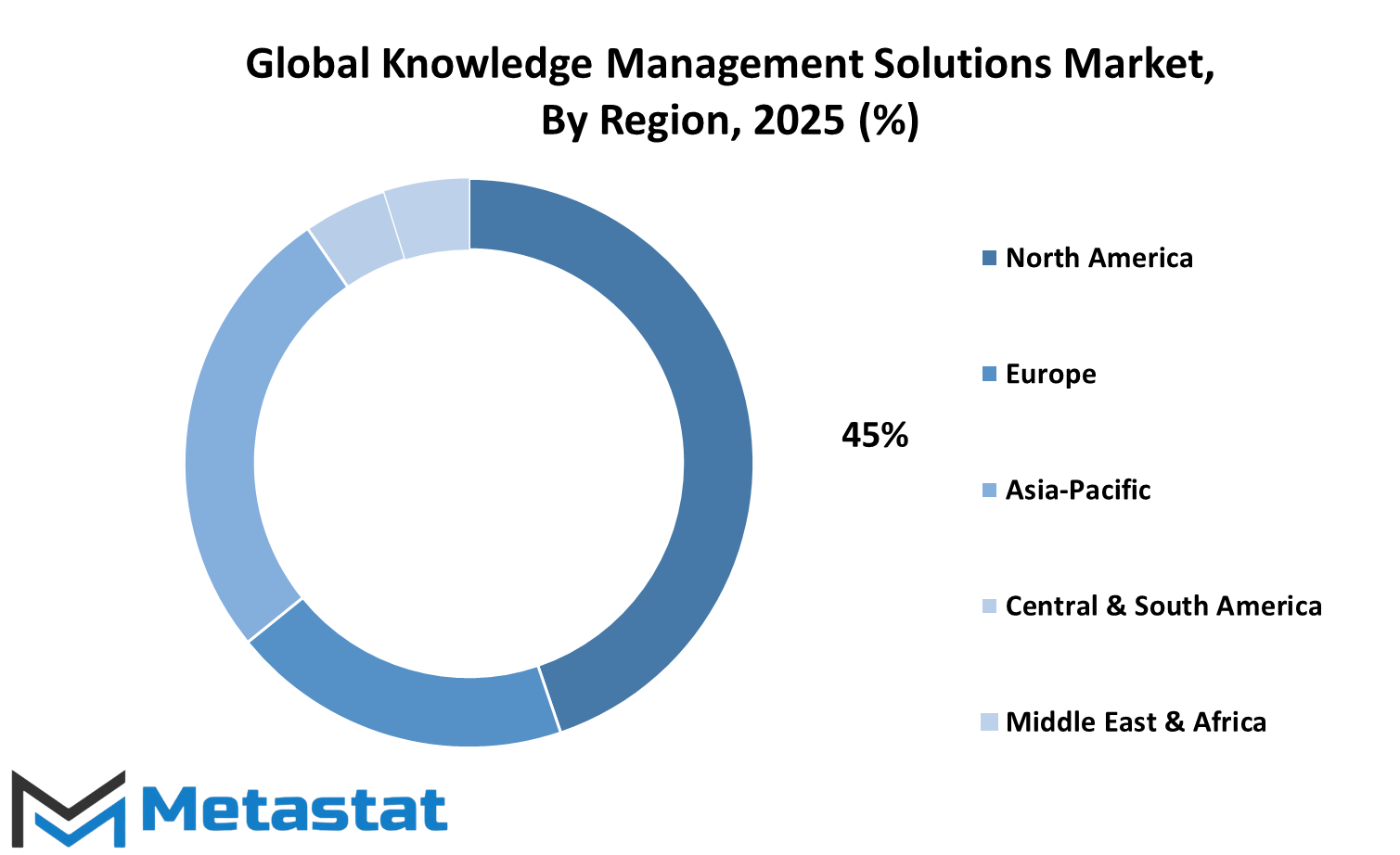
COMPETITIVE PLAYERS
The global knowledge management solutions market is set to see robust growth over time since organizations in various industries are becoming more concerned about how they treat and utilize information. Companies realize that managing knowledge is no longer a choice it is an important component of remaining competitive. As the digital revolution keeps unfolding, increasing numbers of businesses are putting money into tools that assist in the storage, sharing, and utilization of their information in a more intelligent manner. The shift is forging the direction of workplace efficiency in the future, in which smart decisions will be hugely reliant on having the proper knowledge available at the perfect time.
As more demand for smarter tools increases, so does the competition within the market. Several popular players are aggressively developing sophisticated platforms to address evolving business expectations. Microsoft SharePoint and Viva Topics provide integrated communication and knowledge-sharing tools between teams. Atlassian Confluence enables teams to stay structured and collaborate more seamlessly. Zendesk and Salesforce offer solutions that not only enable customer service but also ensure agents have access to helpful information quickly, which enhances the way they reply and resolve requests. Freshworks' Freshservice product, and also Zoho Desk, are also becoming popular for their ease of use and increasing feature sets.
Other entities are also making inroads by concentrating on niche requirements. Some like Guru and Bloomfire, for instance, provide systems to enable employees to answer questions without ever leaving their workflow. ServiceNow and SAP Knowledge Central assist big enterprises with handling huge quantities of knowledge across many departments. These sites eliminate duplicate work and ensure accuracy, smoothing out the work process. Dropbox, Inc. and OpenText offer cloud-based solutions whereby users can store and retrieve files without wasting time on searches. On their part, enterprises such as ProProfs and Scribe are creating solutions to streamline training and sharing of information to save time and increase accessibility.
In the future, the global knowledge management solutions market will probably witness even more innovative developments. Artificial intelligence-powered tools will enhance the way knowledge is sorted, recommended, and utilized. This will result in enhanced decision-making and accelerated problem-solving. As more firms appreciate the worth of these systems, competition for the providers will grow. They will keep enhancing their platforms not just to meet expectations but also to remain relevant. The future of work will rely on how well knowledge is captured, shared, and used and the companies leading in this space will shape how that future looks
Knowledge Management Solutions Market Key Segments:
By Type
- Knowledge Base Systems
- Document Management Systems
- Content Management Systems
- Learning Management Systems
- Collaboration Tools
- Workflow Automation Tools
- Analytics and Reporting Tools
By Application
- Customer Support
- IT Support and Operations
- Human Resources (HR)
- Sales and Marketing Enablement
- Training and Development
- Product Development and Innovation
- Compliance and Risk Management
By End User
- Government and Defense
- Manufacturing
- BFSI
- Pharmaceuticals
- IT and Telecommunication
- Others
Key Global Knowledge Management Solutions Industry Players
- Atlassian (Confluence)
- Microsoft (SharePoint, Viva Topics)
- Zendesk
- Salesforce (Knowledge)
- Freshworks (Freshservice)
- SAP Knowledge Central
- Bloomfire
- Guru
- Zoho (Zoho Desk)
- Scribe
- ServiceNow
- OpenText
- Dropbox, Inc.
- Bloomfire
- ProProfs
WHAT REPORT PROVIDES
- Full in-depth analysis of the parent Industry
- Important changes in market and its dynamics
- Segmentation details of the market
- Former, on-going, and projected market analysis in terms of volume and value
- Assessment of niche industry developments
- Market share analysis
- Key strategies of major players
- Emerging segments and regional growth potential



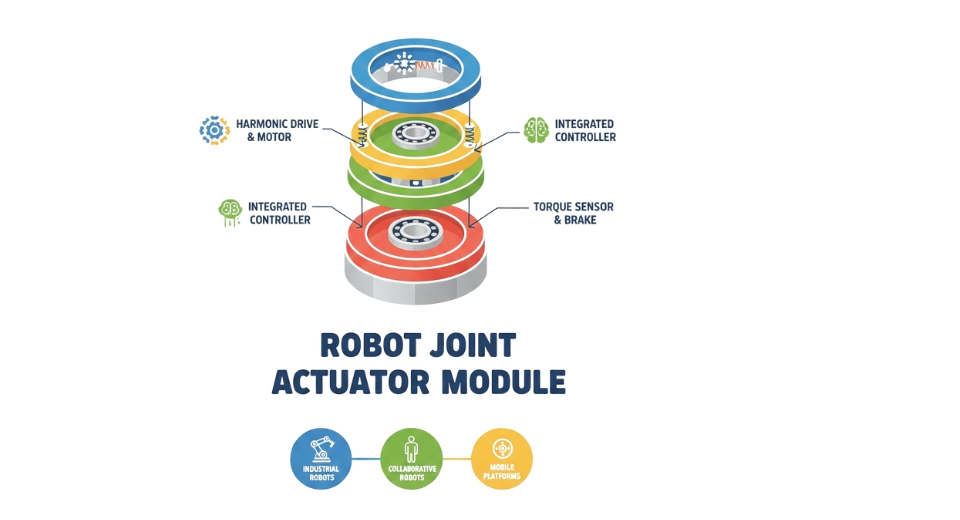
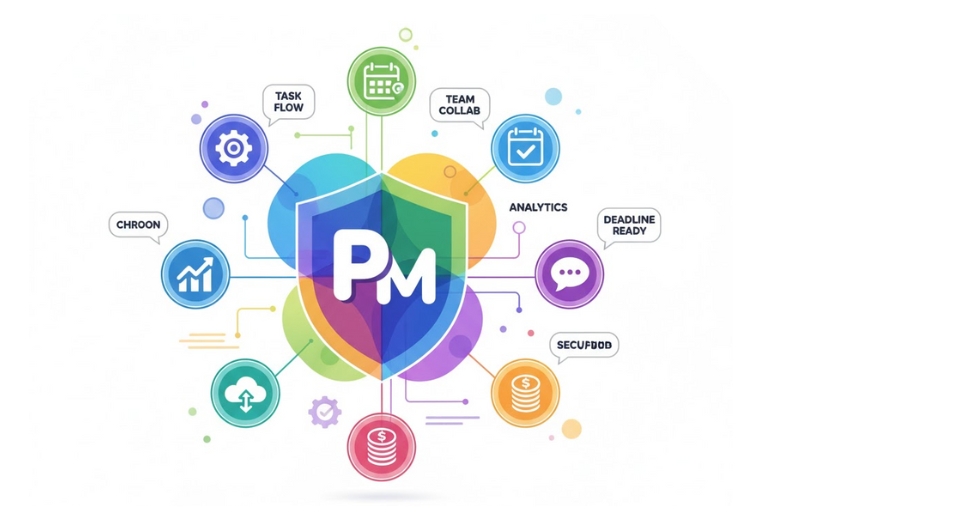
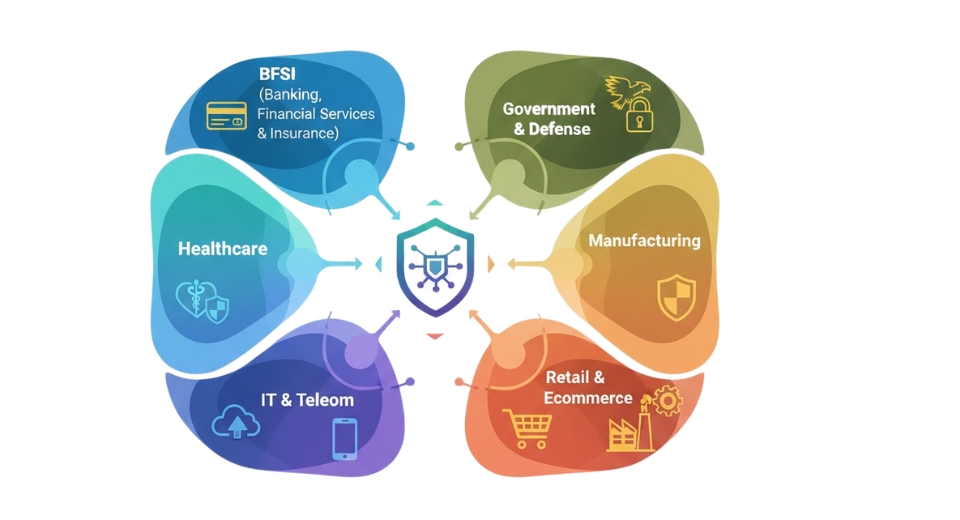


 US: +1-(714)-364-8383
US: +1-(714)-364-8383






